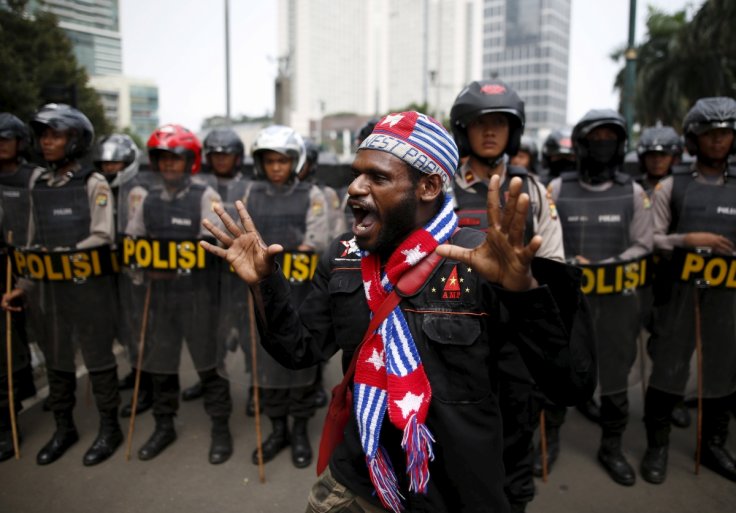
Even as reports of unabated mass migration of racial minorities emerge from Papua, the Human Rights Watch has asked Indonesia to independently investigate recent riots in Wamena that killed 33 Papuans.
Stating that some 8,000 indigenous Papuans have been driven out of their homes since September 29, 2019, the HRW said the government's policing policy should be reviewed. The rights watchdog also said the National Commission on Human Rights should hold an independent probe into the deaths and displacement of Papuans.
On Monday, October 7, the Indonesian air force evacuated as many as 11,400 people from the crisis hit region. Most of the evacuated were migrants living in the region. With social media posts warning imminent violence in the region, more people are waiting to be rescued by the military aircraft.
What is the Papuan crisis?
The impoverished Papua and West Papua provinces in Indonesia have been witnessing mass protests and racism-fuelled violence in recent times. The racial tension and frequent attack on the Papuans by the settlers have also led to calls for self rule in the region.
The fault lines in the region stem from the fact that while the majority of Papuans are Christian and ethnic Melanesian, the vast majority of Indonesian settlers are Muslims.
The simmering conflict came to a head when Papuans protested in at least 30 cities after Indonesian militants attacked a West Papuan student dorm in Surabaya in August. At least 10 people were killed in the protests and during the repression that ensued.
Violence escalated between September 23 and 24, resulting in the death of many more people. According to HRW, 33 people died, including 8 Papuans and 25 people from elsewhere in Indonesia. Many of the victims were children.
Thousands of residents fled Wamena, the epicentre of the protests, amid worsening security situation and rumors of an increased Indonesian military deployment.
HRW stated that Papuan militants had killed 17 Indonesian workers in Nduga, near Wamena, in December last year. The resulting military action had displaced thousands of Papuans from their homes. Following this, the Islamic Defenders Front, a powerful Muslim militia, issued a call for "jihad" against the Christian Papuans in the two provinces.
"Indonesian security forces have often committed abuses against the Papuan population, including arbitrary detention and torture. A lack of internal accountability within the security forces and a poorly functioning justice system mean that impunity for rights violators is the norm in Papua. The failure to appropriately punish serious abuses by Indonesian security forces has fueled resentment among Papuans," said HRW.
Insurgency has been rife in Papua for decades. In 1969, the government held a referendum under the aegis of the United Nations where Papuans got to decide if they should stay with Jakarta. The verdict was against independence but it was alleged that the vote was widely rigged. Indonesia has refused to hold another referendum to decide the fate of the provinces.
"The Indonesian government should also immediately allow the United Nations human rights office unfettered access to (Papua) to investigate the situation," HRW said in a statement.








